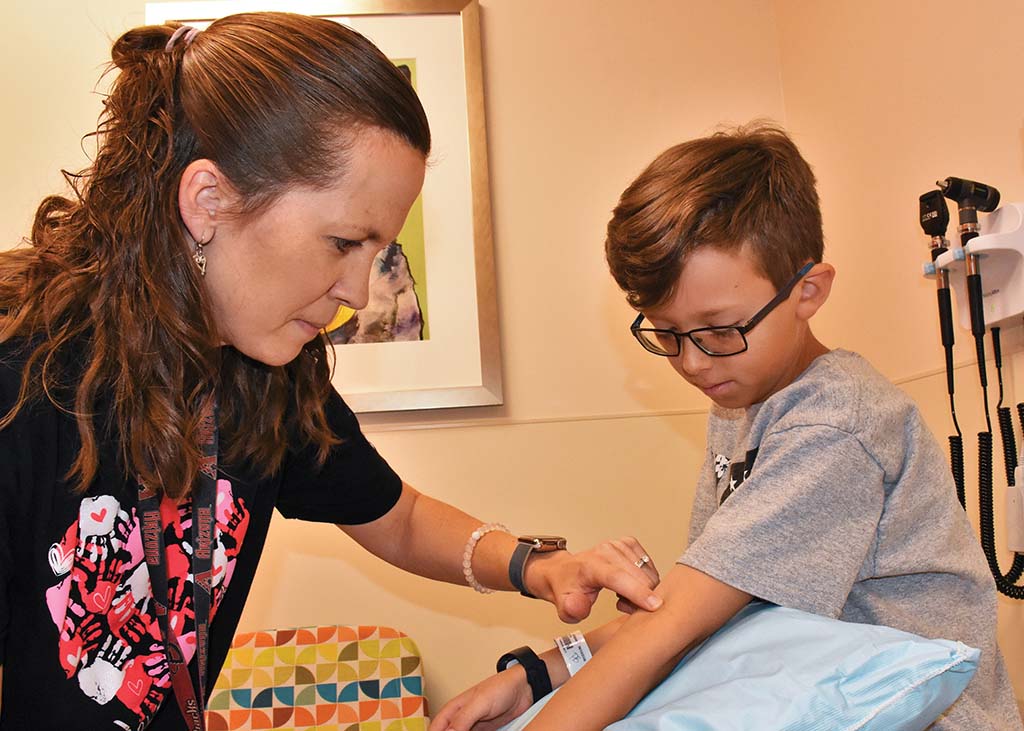Nurses are special people. But according to her co-workers at Phoenix Children’s Hospital, Erica Olson is very special. Olson recently was nominated by her peers and received the “Transformational Leader” Award. During the ceremony she demonstrated her commitment to her work by not attending so she could be with a patient who needed her. She coordinates the clinical research for the hematology department. Areas of her research at PCH include hemophilia, sickle cell anemia, pyruvate kinase deficiency, thromboses, and other blood diseases.
Originally hailing from Missoula, Montana, after college Olson and a friend wanted to escape the small town and moved to Arizona and hasn’t looked back. She, her husband and three children, ages 6, 4, and 7 months, live in Tatum Ranch.
Olson came to the valley 15 years ago with a biology degree and was a research assistant in clinical studies. She then decided to further her education and attended nursing school. After working in hospitals for a few years, the research company she had previously worked for convinced her to go back and work for them. Two friends from that company then started working at PCH and she learned of a job opening at the hospital and she says, “I jumped on it and haven’t looked back.”
She admits that she was nervous about changing to pediatrics, but says it was the best decision of her career. She says her previous research was for profit and it was very much about getting people into the studies. At PCH, “It really is trying to get the best treatments for our patients.” Also saying the hospital is really on the forefront of these new up and coming treatments for the young patients.
Sometimes the research involves testing family members as well for genetic indicators. One of the negative parts of the job is when the team has to tell a relative that they may be carriers of the disease and their children may be born with the disease. She said it’s especially hard to tell that to a teen.
But the positives such as, seeing children gain hope and helping them improve their quality life, far outweigh negative. Also as the studies are ongoing for years, she gets to know the families and watch the kids growing up. “It’s the first job that I’ve had where I love coming to work. I never thought I could have that in my life.”





